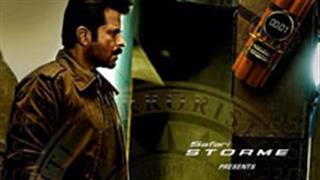Remember that iconic scene from Mother India (1957) in which Nargis's character pleads with her fellow villagers not to leave the village? To her credit, they stayed back. But over the following years, Hindi cinema constantly kept trudging towards the bigger towns.
The transition was complete even before we entered the new millennium. However, in the recent past, there has been a brave attempt by filmmakers to go back to the smaller towns - if not full-fledged villages.

Shuddh Desi Romance, starring Sushant Singh Rajput and Parineeti Chopra, is set in Jaipur as it revolves around how the small-town youth view modern-day relationships
For instance, Prabhu Deva's Ramaiya Vastavaiya had a rural setup with a major portion shot in a greenery-laced area not very far from Pune. Vikramaditya Motwane's period drama, Lootera, was shot in Dalhousie. The comic-turned-tragic love story Raanjhanaa, starring Dhanush and Sonam Kapoor, was set in Varanasi. So was the Romeo-Juliet adaptation titled Issaq.
As Yash Raj Films' upcoming movie Shuddh Desi Romance, starring Sushant Singh Rajput and Parineeti Chopra, is about how the small-town youth view modern-day relationships. And it has been shot largely in Jaipur.
Likewise, Sanjay Leela Bhansali's big-screen adaptation of Romeo-Juliet, Ram Leela, is shot in Udaipur and depicts a strong Rajasthani flavour. Punit Malhotra's Gori Tere Pyaar Mein, portraying Kareena Kapoor as a village belle, is set on the border of Madhya Pradesh and Gujarat.

Sanjay Leela Bhansali's Ram Leela, starring Ranveer Singh and Deepika Padukone, is set in Udaipur
In 2012, there were some small town-based films such as Dabangg 2 (shifting from Laalgunj to Kanpur, UP) and Ishaqzaade (set in the fictional town of Almora) too. When Anurag Kashyap's Gangs of Wasseypur (GOW) released last year, the non-urban rawness not only made itself evident but also reassuringly relatable.
According to Kashyap, it was about time the industry went back to exploring what lies in the interiors. `Not just villages, even smaller towns reflect the real India; a country that has very little to do with the much-fabled fast-paced metropolitan life.`

Nawazuddin Siddiqui, who essayed a pivotal part in GOW, feels better stories are drawing the industry towards lesser-known locales. `A writer sitting in Mumbai can let his imagination loose by cooking up plots in geographical destinations that are far away from his city.
Besides, who doesn't like a more interesting story?` asks the actor who will be next seen in Buddhadeb Dasgupta's Anwar Ka Ajab Kissa, which is also based in a small town.

A major portion of Raanjhanaa starring Dhanush and Sonam Kapoor was filmed in Varanasi
Not very long ago, a lot of our movies were written keeping the urbane and NRI crowd in mind. So has that parameter changed now? `People have realised that you can't make movies keeping a particular set of crowd in mind. You have to take risks with the numbers. People are getting real and so are the films. In fact, even the NRIs find resonance in movies with stronger Indian roots. That's the reason why the focus has suddenly shifted to areas beyond the metros,` explains trade analyst Taran Adarsh.

What's intriguing to note here is the lack of need to shoot in foreign venues. `Yes, there are challenges but shooting in your own country - despite all the bureaucratic hassles - is one long learning experience,` says choreographer-director Prabhu Deva before adding that the recce ultimately has to bow to the script. `Ramaiya Vastavaiya required a non-urban backdrop so we started looking around for that perfect village.
Luckily enough, we found one too.` This geographical shift is a clear case of lost and found.




















